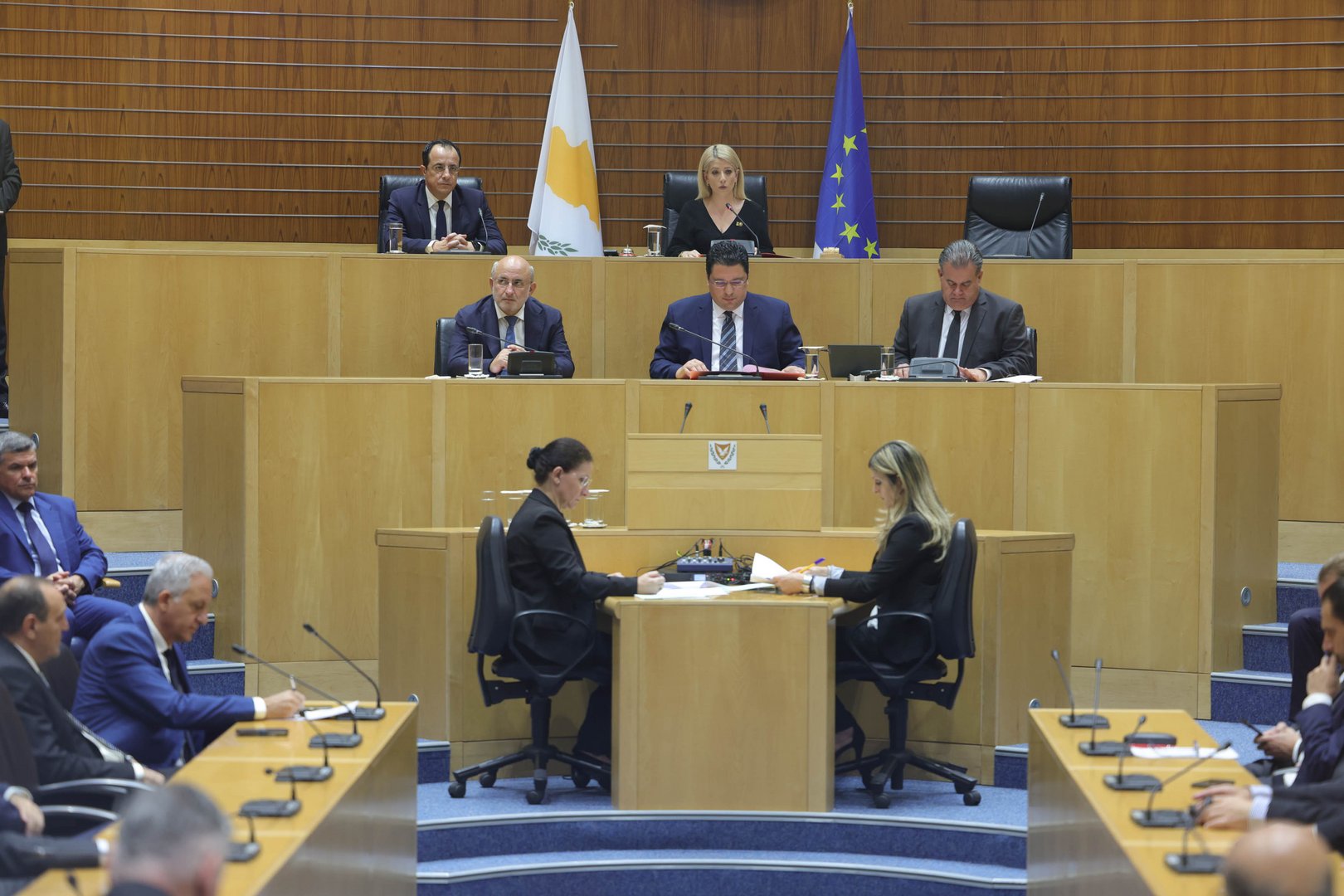Amid a heated debate in the House on Thursday, MPs voted through a law introducing further restrictions on public gatherings and parades, giving the chief of police sweeping powers to cancel or disperse a gathering whenever deemed to have become “non-peaceful”.
The government bill passed with 26 votes in favour from Disy, Diko, Edek, Dipa and Elam MPs.
Akel, the Greens, and independent MPs Costas Efstathiou and Andreas Themistocleous voted against.
Amendments tabled by Akel were voted on and defeated.
Outside the parliament building, a group of people had gathered to protest the legislation.
Under the new rules, organisers of public gatherings – such as demonstrations – should notify local authorities of the time and place, though this is not mandatory.
The police chief may impose restrictions on a gathering or parade, under certain conditions and according to certain prescribed procedures. The police chief is also empowered to order the dispersal of such gatherings.
The new law further gives the police considerable discretion in deciding whether to order a person participating in a gathering to remove any items or means preventing identification.
Such orders to reveal one’s identity will be given once the police chief has decided that a gathering should be dispersed.
The only case where police may not issue such an order, is where a person is in the general vicinity of a gathering but not directly participating.
Otherwise, where a gathering has already turned violent, or a crime is being committed in the vicinity of the gathering, or there exists “reasonable suspicion” that a crime is being committed, or even if there is “reasonable suspicion” that a gathering may turn “non-peaceful”, police officers have the authority to order someone to reveal their identity if it’s being concealed in any way.
Refusal to reveal one’s identity in these circumstances will result in a fine of up to €5,000 – up from €3,000 now.
In addition, any person found to commit violence, or who incites another to commit violence during the course of a public gathering, is liable to a fine of up to €10,000 – from €4,000 currently.
Article 21 of the constitution reads: “Every person has the right to freedom of peaceful assembly.”
It adds: “No restrictions shall be placed on the exercise of these rights other than such as are prescribed by law and are absolutely necessary only in the ‘interests of the security of the Republic or the constitutional order or the public safety or the public order or the public health or the public morals or for the protection of the rights and liberties guaranteed by this Constitution to any person, whether or not such person participates in such assembly or is a member of such association.”






Click here to change your cookie preferences